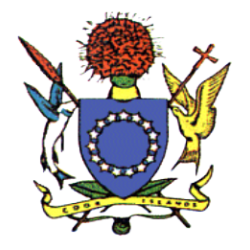Environment Act 2003
The Environment Act 2003 is the primary legislation applied throughout the Cook Islands (including the territorial sea and exclusive economic zone), and the Outer Islands (Pa Enua) of Aitutaki, Atiu, Mauke and Mitiaro.

The Act provides a comprehensive legal framework for all environmental aspects of the Cook Islands for planning and national coordination relating to environment management, protection and conservation. The Act also provides an instrument from the distribution of powers and functions both at a central and a local level to the prescription of specific environmental requirements and management procedures.
The Act is administered within the National Environment Service (“the Service”), which is a body corporate headed by a Director of Service, with the obligation to:
- protect, conserve and manage the environment and wildlife
- ensure the sustainable use of natural resources, prevent
- control and correct the pollution of air, water, and land and carry out other functions listed in Section 9
In particular, the Act emphasizes on the environment approval processes such as the environment impact assessment for a wide range of development activities to ensure sustainable development. Other areas regulated by the Act include resource management and management plans for the protection of biodiversity, soil erosion, forests, wetland and protected areas.
Moreover, the Act also plays an essential role to provide a strategy for the domestic implementation of the international environmental obligations and meet commitments under Multilateral Environment Agreements (MEAs) assumed by the Cook Islands under international law. These include the Convention of Biological Diversity (CBD), United Nations Framework Convention on Climate Change (UNFCCC), Montreal Protocol 1989, and the Convention on the Protection of Natural Resources and the Environment of the South Pacific (‘Noumea Convention’).
Finally, the Act provides a powerful mechanism to promote and support the objectives of key national strategies and policies. This includes the National Sustainable Development Agenda 2020+, National Biodiversity Strategies and Action Plans (NBSAPs). Implementation of the Act requires wide range of stakeholders including government entities, non-government organizations, traditional leaders (Aronga Mana), commercial and industrial entities, communities and the general public.
NES has national programmes, trainings, education and awareness programs to support all government entities and other relevant non-government organizations. NES aims to promote updated laws, policies, guidelines, factsheets and other information resources through this website.



